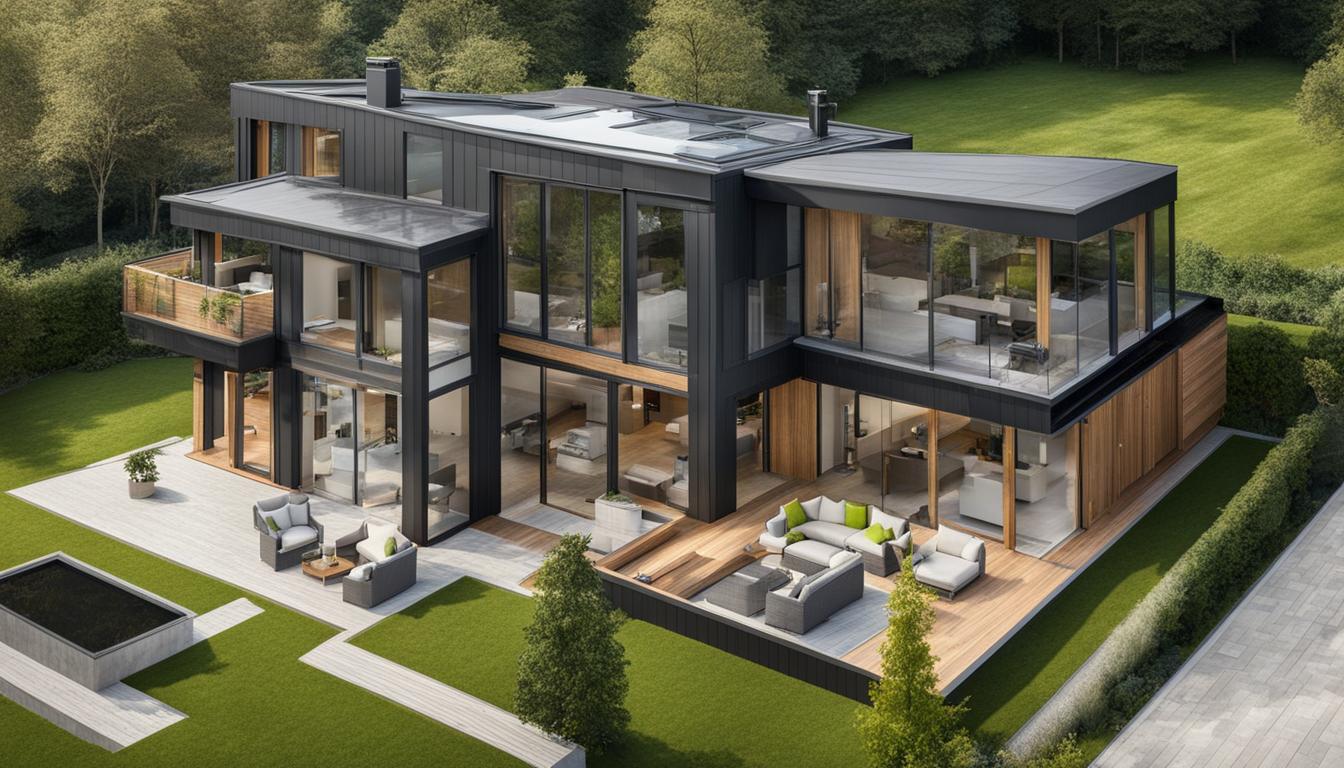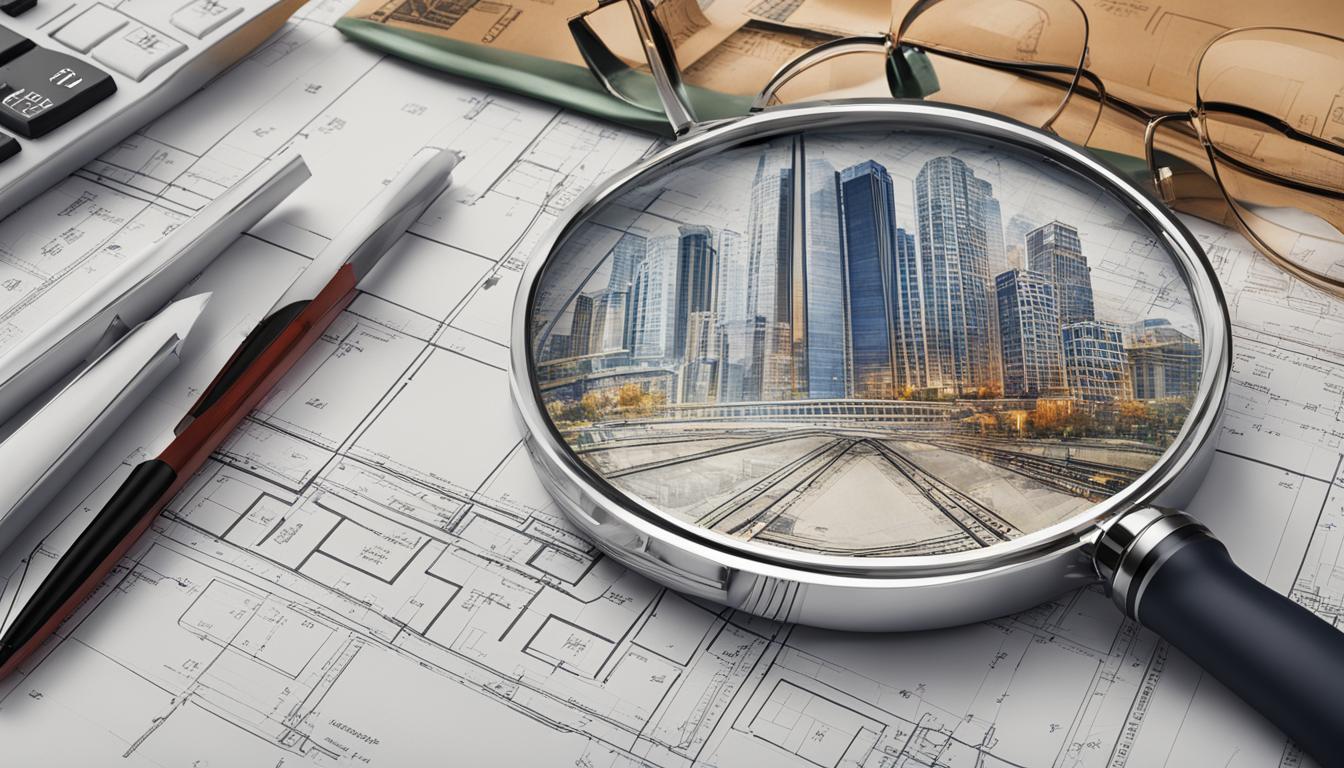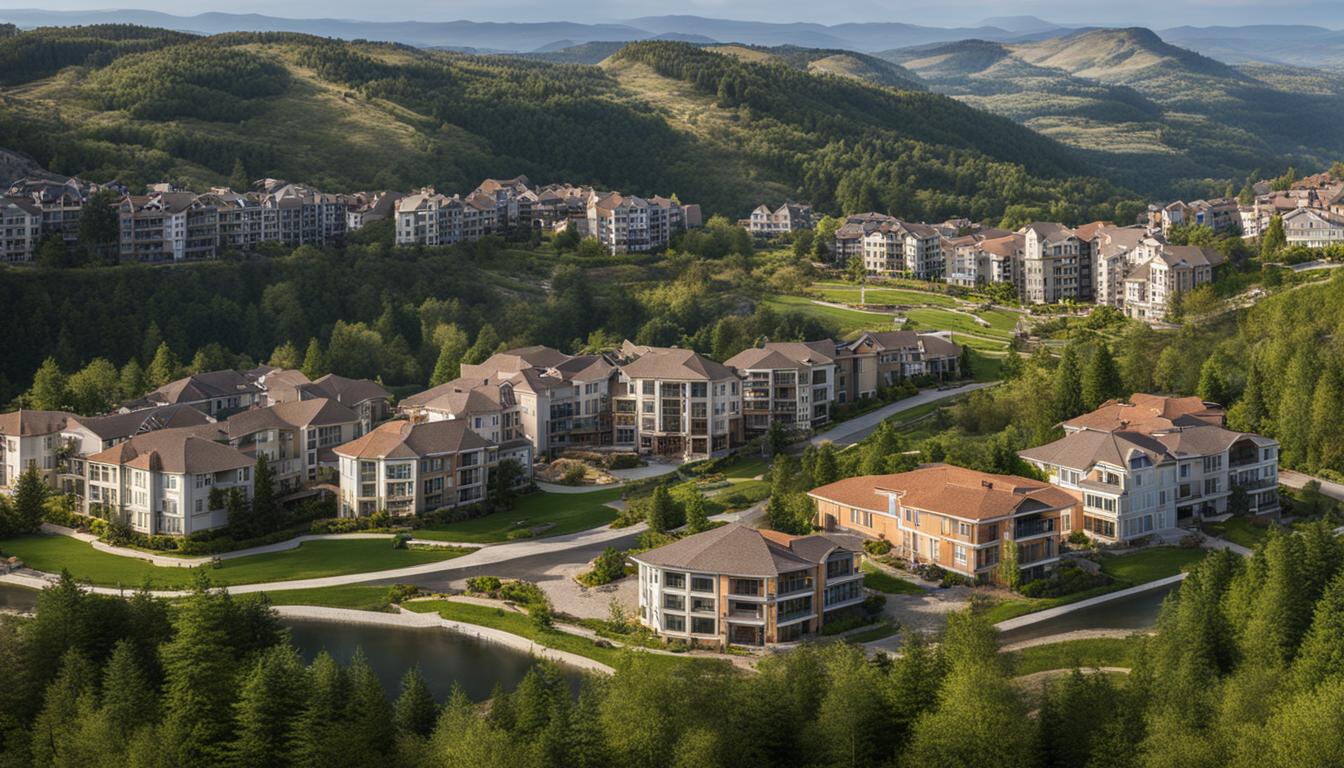Understanding Your House Extension Cost in Australia
- Expanse Builders
- 03 Nov 2023

Factors Affecting House Extension Costs
The cost of a house extension can vary significantly based on several factors. Understanding these factors is crucial in creating a realistic budget for your project. Below are some of the key elements that can influence the cost of your house extension:
Size and Complexity of the Extension
The size and complexity of your house extension project play a crucial role in determining the overall cost. Large extensions or those with intricate designs and structural changes generally result in higher costs. For example, extending a kitchen by adding a small pantry or a nook will cost significantly less than adding an entire new room or floor.
Material Selection and Quality
The choice of materials used in your house extension project can have a significant impact on the overall cost. Higher-quality materials, such as premium finishes or sustainable options, often come at a higher price. It is essential to choose materials that fit both your aesthetic and budgetary requirements.
Design and Architectural Fees
Engaging an architect or designer to create detailed plans and drawings for your house extension will incur additional fees. These fees can vary based on the complexity of the design and the reputation of the professional. However, having a professional plan and design for the extension can ensure the project is functional and aesthetically pleasing while adhering to all building codes and regulations.
Building Permits and Regulations
Obtaining the necessary building permits and complying with local regulations is a crucial step in any house extension project. These permits and associated fees should be factored into your budget. The cost of permits and regulations will vary based on the size of the project and the location of the property.
Structural Changes and Additional Utilities
If your house extension involves structural changes, such as removing walls or adding additional utilities, this can significantly impact the overall cost. Other services, such as plumbing or electrical work, will incur extra expenses. Your builder or contractor can provide a detailed cost estimate for structural changes.
Labour and Construction Costs
Labour and construction costs make up a significant portion of the overall house extension cost. The project’s complexity, duration, and the number of professionals involved will influence these costs. It is recommended to obtain information from several reputable contractors to ensure that the prices are reasonable and competitive.
Location and Site Conditions
The location and site conditions of your property can affect the cost of your house extension. Accessibility, site preparation, and existing infrastructure can impact the overall expenses. For example, a sloping site may require additional excavation, while a property with limited access may require extra labour and equipment.
Considering all these factors, you can create a realistic budget and plan for your house extension project. Utilizing a home renovation cost calculator or obtaining information from professionals can provide you with a better understanding of the associated costs.
Size and Complexity of the Extension
How much does a home extension cost?
The size and complexity of your house extension project are key factors that can significantly affect the overall cost. While more minor extensions may be less expensive, more significant projects with intricate designs and structural changes can increase prices.
According to recent data, an essential house extension can cost anywhere from $3,350 to $3,900 per square metre, while a more complex extension with higher-end finishes can cost up to $7,000 per square metre.
If you have a larger property and plan to extend your home, you may also need to consider the added costs of additional materials, labour, and construction time. For instance, a two-story extension can cost up to 50% more than a single-story project.
It is essential to work closely with your builder or architect to determine the ideal size and complexity of your extension project. Consider your needs and budget and ensure the plans align with your requirements. By carefully planning every aspect of your project, you can avoid unexpected expenses and ensure a successful outcome.
Material Selection and Quality
The choice of materials used in your house extension project can have a significant impact on the overall cost. Higher-quality materials, such as premium finishes or sustainable options, often come at a higher price. However, they can also add long-term value to your home and lower maintenance costs.
Consider the following factors when selecting materials:
- Functionality: Will the material serve its intended purpose effectively?
- Durability: How long will the fabric last before needing replacement?
- Aesthetics: Does the material fit with the overall design and style of your home?
- Maintenance: How much time and money will be required to maintain the material?
It’s also essential to choose appropriate materials for the climate and location of your home. For example, if you live in an area with high humidity, consider materials that can withstand moisture and prevent mould growth.
To help you make informed decisions about material selection and quality, consult a professional builder or supplier. They can provide expert advice and offer recommendations based on your specific project requirements.
Comparing Material Costs
Below is a comparison of the average costs of different materials for a house extension:
| Material | Average Cost per Square Metre |
|---|---|
| Timber | $3,200 – $4,200 |
| Brick | $3,800 – $4,800 |
| Concrete | $3,900 – $4,400 |
| Steel | $3,300 – $4,500 |
Remember that these costs are just estimates and can vary based on several factors, including the size and complexity of your project. Always consult with a professional builder or supplier to get accurate pricing information for your specific project.
Design and Architectural Fees
Engaging an architect or designer is a crucial step in creating your dream home extension. These professional services come at a cost and should be factored into your budget. The fees for design and architecture services can vary based on the complexity of the project and the reputation of the professional.
It is crucial to find an architect or designer who understands your vision and can incorporate all your needs and requirements into the design plans. You should out multiple professionals to compare their style and services.
“Good design is a lot like clear thinking made visual.” ― Edward Tufte
By investing in a skilled and experienced architect or designer, you can ensure that your house extension project is planned and executed efficiently, reducing the risk of any unforeseen expenses.
How to Minimize Design and Architectural Fees?
One way to reduce design and architectural fees is to have a clear idea of your project requirements before engaging a professional. This can help to streamline the design process and reduce the number of revisions required, ultimately saving you money. Allowing $35000 for architectural input to your project is a good starting point for work up to $800,000.
You can also consider using pre-designed templates or standard designs, which can be modified to suit your specific needs. This can save you money and time on design and architecture fees.
Building Permits and Regulations
Before commencing your house extension project, you must obtain the necessary building permits and comply with local regulations. Failure to do so can result in costly fines and legal issues. Your local council or building authority will have specific requirements and fees for these permits, which can vary based on the location and scope of your project.
An essential aspect of building permits is ensuring your plans meet the necessary building codes and standards. This includes structural integrity, fire safety, and energy efficiency. It is recommended that you engage a professional builder or architect to assist with the permit application process and ensure your plans are compliant.
Building Permit Fees in Australia
| State | Average Permit Fee |
|---|---|
| New South Wales | $900 – $4000 |
| Victoria | $40 – $160 per $10,000 of build value |
| Queensland | $40 – $115 per $10,000 of build value |
| Western Australia | $115 – $240 per $10,000 of build value |
| South Australia | $160 – $180 per $10,000 of build value |
| Tasmania | $80 – $135 per $10,000 of build value |
| Australian Capital Territory | $350 – $450 |
| Northern Territory | $320 – $1,280 |
It’s important to note that these fees are only an estimate, and the final cost will depend on the scope and complexity of your project. Additionally, some states may have additional fees for inspections or other services.
By factoring in building permit and regulation costs, you can ensure your house extension project is legal and safe. Plus, completing the permit application process can also provide you with the opportunity to ensure your plans are feasible and compliant before beginning construction.
Structural Changes and Additional Utilities
If your house extension requires structural changes or additional utilities, this can significantly impact the overall cost. For example, removing walls to create an open-concept layout or adding plumbing and electrical work can add other expenses to your project.
The cost of these changes will depend on the extent of the work required. For instance, if you’re removing a load-bearing wall, you’ll need to hire a structural engineer to ensure the safety and stability of your home. This will add a fee to your budget.
Adding utilities such as plumbing or electrical work will also incur extra expenses. The cost of these services will depend on the complexity of the work and the materials used. For instance, installing new wiring or piping may require tearing down walls and reconfiguring room layouts, which can be time-consuming and costly.
If you need to make structural changes or add utilities to your house extension, it’s essential to work with a professional who has experience in this kind of work. Hiring a reputable builder or contractor will help you ensure that the work is done correctly and safely.
Table: Examples of Structural Changes and Additional Utilities
| Change | Cost |
|---|---|
| Removing a load-bearing wall | $2,500 – $7,000 |
| Adding new plumbing to a bathroom | $2,000 – $5,000 |
| Installing new electrical wiring | $500 – $1,500 per room |
| Adding a new HVAC system | $3,500 – $7,500 |
Remember to factor in the cost of these changes when budgeting for your house extension project. A good rule of thumb is to add 10-20% to your overall project budget to account for unexpected expenses. Alternatively, if you have engaged your builder as a consultant during design, you may not need a contingency as the risks have already been mitigated.
Labour and Construction Costs
Labour and construction costs are significant factors regarding house extension costs. The level of complexity of the project, the number of professionals involved, and the duration of the project are the main factors that influence these costs.
The cost of labour and construction in Australia is typically high, with the average hourly rate of a builder being around $80-$120. Plumbing and electrical work can also contribute to the overall cost, with the average cost of an electrician being around $75-$100 per hour.
The cost of materials and equipment is also a crucial consideration in calculating the overall labour and construction costs. For instance, the cost of concrete, steel, and timber can increase or decrease the project’s price significantly.
You can save on labour and construction costs by choosing a builder who does a thorough site investigation during design. Before engaging any professional, you should compare the services of several builders to understand the difference in quality.
| Labour and Construction Costs | Range Cost |
|---|---|
| Carpenters | $80-$120 per hour |
| Electricians | $90-$140 per hour |
| Plumbers | $90-$140 per hour |
Additionally, the project’s duration can impact the overall labour and construction costs. Longer projects require more resources, which may increase the price. However, if you have a tight budget, you can opt for a shorter project duration by choosing a more straightforward design that requires less labour and fewer materials.
To ensure that you get the best value for money, it is imperative to work with a reputable and experienced builder who has the expertise to handle your project efficiently.
Location and Site Conditions
Regarding house extension costs, the location and site conditions of your property can significantly impact the overall expenses. Factors such as accessibility, site preparation, and existing infrastructure can all play a role in determining the cost of your extension project.
If your property is in a densely populated area, such as a city centre, you may face additional costs related to transporting materials and equipment to the site. On the other hand, if your property is located in a remote area, you may need to pay more for labour and transportation costs to attract skilled professionals to the site.
The site conditions of your property can also affect the cost of your house extension. For instance, if the site requires significant preparation work, such as removing trees or rocks, this can add to the overall cost. Additionally, if your property has poor soil or is in a flood-prone area, you may need to invest in additional measures, such as soil testing or drainage systems, to ensure a safe and secure extension.
Existing infrastructure can also impact the cost of your extension project. If your property is located in an area with limited access to utilities, such as water and electricity, you may incur additional expenses to connect your extension to the existing infrastructure or invest in alternative solutions. Moreover, if your property is connected to an outdated or overloaded infrastructure, you may need to upgrade it to accommodate the additional demands of the house extension.
Example
For instance, if your house is in a rural area with limited transportation and communication infrastructure, you may need to budget an additional 10% to 15% for transportation and communication costs. Similarly, if your property is in a flood-prone area, you may need to invest in additional measures, such as elevating the extension or installing a drainage system, which can add up to $10,000 to $20,000 to your project costs.
Budgeting and Cost Estimation Tools
If you’re planning a house extension project, one of the main questions you might have is, “How much does a home extension cost?” Estimating the costs of your project is crucial to ensure that you have the necessary funds available and can avoid any unexpected expenses.
Home Renovation Cost Calculator
One of the best ways to estimate the costs of your house extension project is by using a home renovation cost calculator. These online tools allow you to enter the details of your project, such as the size and complexity of the extension, the materials you plan to use, and any other specific requirements. Based on this information, the home renovation cost calculator will estimate the potential costs.
Seeking Out A Reputable Builder
While a home renovation cost calculator can estimate the costs involved in your project, it’s also a good idea to seek proposals from reputable builders or professionals in your area. This can give you a better understanding of the expenses involved and provide you with more accurate cost estimations.
When seeking proposals from builders, you must provide them with as much detail as possible about your project to ensure they can provide you with accurate information. You may also consider talking to multiple builders to compare their personalities and services.
By using a home renovation cost calculator and seeking out reputable builders, you can better budget for your house extension project and ensure that you have the necessary funds available to achieve your dream home expansion.
How much does a home extension cost?
FAQ
What factors affect the cost of house extensions in Australia?
The cost of a house extension can vary based on several factors, including the size and complexity of the extension, material selection and quality, design and architectural fees, building permits and regulations, structural changes and additional utilities, labour and construction costs, and location and site conditions. All these factors contribute to the overall cost of your house extension project.
How does the size and complexity of the extension affect the cost?
More significant extensions or those with intricate designs and structural changes generally incur higher costs. The size and complexity of your house extension project play a substantial role in determining the price.
How does material selection and quality impact the cost?
The choice of materials used in your house extension project can have a significant impact on the overall cost. Higher-quality materials, such as premium finishes or sustainable options, often come at a higher price.
Do design and architectural fees contribute to the overall cost?
Yes, engaging an architect or designer to create detailed plans and drawings for your house extension will incur additional fees. These fees can vary based on the complexity of the design and the reputation of the professional.
How do building permits and regulations affect the cost?
Obtaining the necessary building permits and complying with local regulations is a crucial step in any house extension project. These permits and associated fees should be factored into your budget.
What impact do structural changes and additional utilities have on the cost?
If your house extension involves structural changes, such as removing walls or adding additional utilities, this can significantly impact the overall cost. Other services, such as plumbing or electrical work, will incur extra expenses.
How do labour and construction costs contribute to the overall cost?
Labour and construction costs make up a significant portion of the overall house extension cost. The project’s complexity, duration, and the number of professionals involved will influence these costs.
Can the location and site conditions affect the cost of a house extension?
Yes, the location and site conditions of your property can affect the cost of your house extension. Accessibility, site preparation, and existing infrastructure can impact the overall expenses.
Are there any tools available to help budget for a house extension project?
To help you effectively budget for your house extension, there are various cost estimation tools and calculators available. These tools can provide you with an estimate of the potential costs based on your specific project requirements. Additionally, seeking information from reputable builders or professionals will give you a better understanding of the expenses involved. Speak with Expanse Builders to see how engaging your builder during design can benefit your home extension project.
Download our eBook to make your Bathroom look beautiful!
Get yourself a copy of our eBook and learn more about what the team at Expanse Builders can do with your bathroom.







